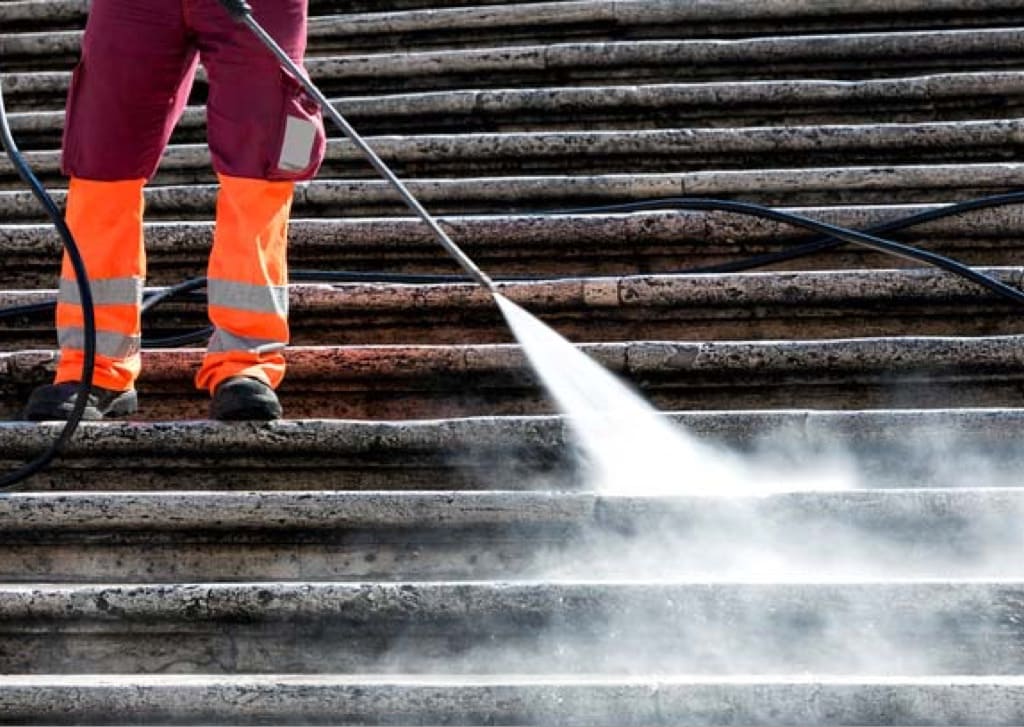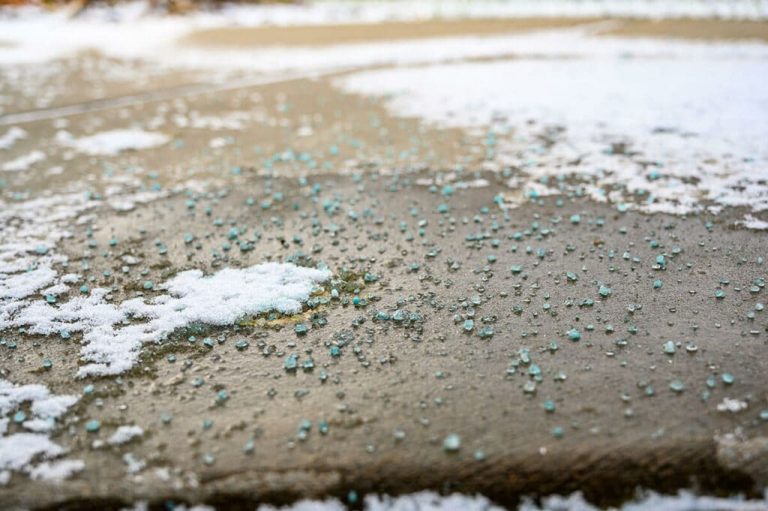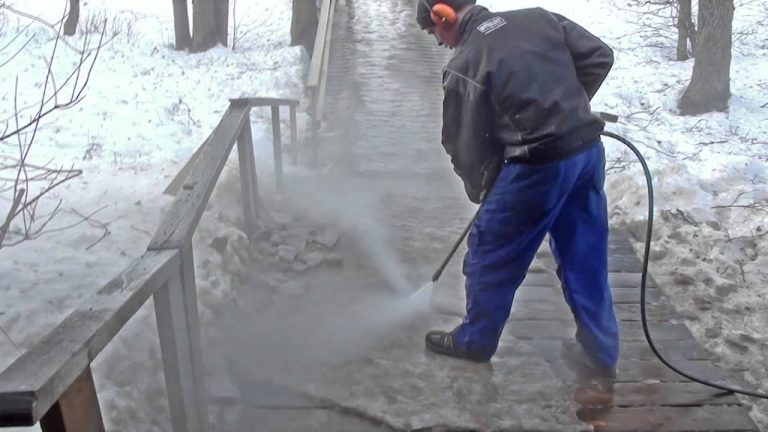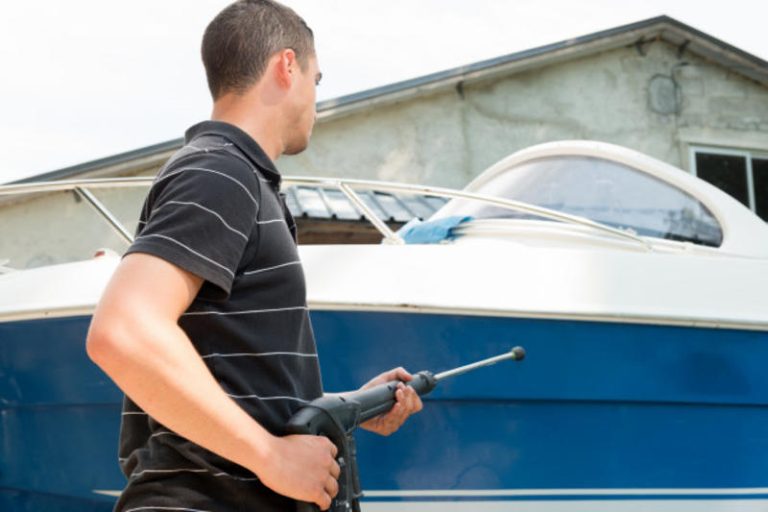
If you’re tackling a greasy driveway, oil-stained garage floor, or mildew-covered patio, you might be wondering: Can I use hot water in a regular power washer to boost cleaning power? After all, we wash dishes and clothes with hot water — wouldn’t it work better for power washing too?
It’s a logical question — but the answer comes with some important warnings. Not all power washers are designed to handle hot water, and using it in the wrong machine can cause permanent damage or even become a safety hazard. Let’s explore when you can — and can’t — use hot water in your pressure washer. 🔧💦
🔥 Why Use Hot Water for Power Washing?
Hot water has several advantages when it comes to deep cleaning:
- 🛢️ Breaks down grease and oil faster
- 🦠 Kills bacteria, mold, and mildew more effectively
- 🧼 Improves detergent performance
- 🧊 Cleans sticky substances like gum, sap, and tar better
That’s why commercial and industrial power washers often use heated water for things like vehicle fleets, food processing equipment, and factory floors.
But here’s the catch: Only power washers designed to handle hot water should ever be used that way. Let’s talk about why.
🚫 Why You Shouldn’t Use Hot Water in a Cold Water Power Washer
Most consumer-grade pressure washers are cold-water-only units. They are designed to work with water at typical tap temperatures — usually around 40–70°F (4–21°C).
Using hot water (especially anything above 100°F / 38°C) in a cold-water pressure washer can:
- 💥 Warp or crack internal seals
- 🔩 Damage hoses, O-rings, and fittings
- ⚠️ Cause pump components to expand or fail
- 🧯 Void your warranty
In short, it’s not worth the risk. You could turn a $300 tool into a paperweight in minutes. 🛑
🧪 How to Tell If Your Power Washer Can Handle Hot Water
Check the owner’s manual or manufacturer’s label. You’ll typically find one of these:
- ❄️ Cold Water Only – Do not use hot water
- 🌡️ Max Inlet Temperature – Usually listed in degrees Fahrenheit or Celsius
- 🔥 Hot Water Capable – Machine is designed with heat-resistant seals, hoses, and pumps
If your model doesn’t explicitly say it’s hot water compatible, assume it’s not. Better safe than sorry. ✅
🧰 What Is a Hot Water Power Washer?
Hot water power washers are built differently from standard models. They have:
- Built-in water heaters (diesel, propane, kerosene, or electric)
- Heat-resistant components throughout the pump system
- Higher price tags, typically starting at $1,500+
These are most commonly used in commercial or industrial applications — but are available to homeowners who do frequent heavy-duty cleaning.
🧼 Alternatives for Cold Water Washers
If your machine only handles cold water, don’t worry — you can still tackle tough jobs with these tips:
🧴 Use a Heavy-Duty Degreaser
Look for oil-cutting or enzyme-based cleaners that are designed for use with cold water. Let them dwell for 10–15 minutes before rinsing.
💪 Scrub Before You Spray
For thick grime or stains, apply cleaner first and use a stiff brush before rinsing with your washer.
🌤️ Work in Warm Weather
Let the sun preheat surfaces like concrete or asphalt — this can boost cleaner performance naturally.
🧽 Use a Surface Cleaner Attachment
These attachments increase water coverage and agitation, simulating the effect of hot water — especially for large flat surfaces.
🛠️ Can You Pre-Warm the Water Slightly?
In some cases, you can use lukewarm water (under 100°F / 38°C) — but only if your washer’s manual says it’s safe.
Even mildly warm water:
- Helps loosen oily stains
- Boosts detergent effectiveness
- Can be a helpful middle ground
Just be cautious — never exceed the recommended max temperature, or you’ll risk damaging seals, valves, and the pump.
🌡️ Max Inlet Temperatures by Washer Type
| Type of Washer | Max Safe Water Temp |
|---|---|
| Electric cold-water washer | 100°F (38°C) or less |
| Gas cold-water washer | 120°F (49°C) (if allowed) |
| Hot-water power washer | Up to 200°F (93°C) |
Always verify with the user manual or manufacturer’s specs before trying anything above room temperature.
🧠 Pro Tip: Cleaning Oil Stains Without Hot Water
If you’re targeting engine oil, grease, or cooking fat spills:
- Sprinkle cat litter or baking soda on the stain and let it absorb for 30–60 minutes
- Sweep or vacuum up the absorbent material
- Apply degreaser and scrub
- Rinse with your cold-water pressure washer
This combo removes most driveway or garage stains without needing heat. 🧽🛻
🏁 Final Thoughts
So, can you use hot water in a regular power washer? The answer is: Only if your machine is built for it.
For most consumer-level models:
- 🔧 Cold water is the only safe choice
- 🚫 Hot water can cause irreversible damage
- ✅ Use quality detergents and smart techniques to clean effectively
If you do frequent heavy-duty cleaning and want the benefits of heat, it may be time to upgrade to a hot water power washer — just be prepared for the price and added complexity.
Until then, work smarter with what you’ve got. Cold water and good technique can go a long way. 💪❄️🧼
Browse Amazon Here For Top Rated Power Washers And Accessories






